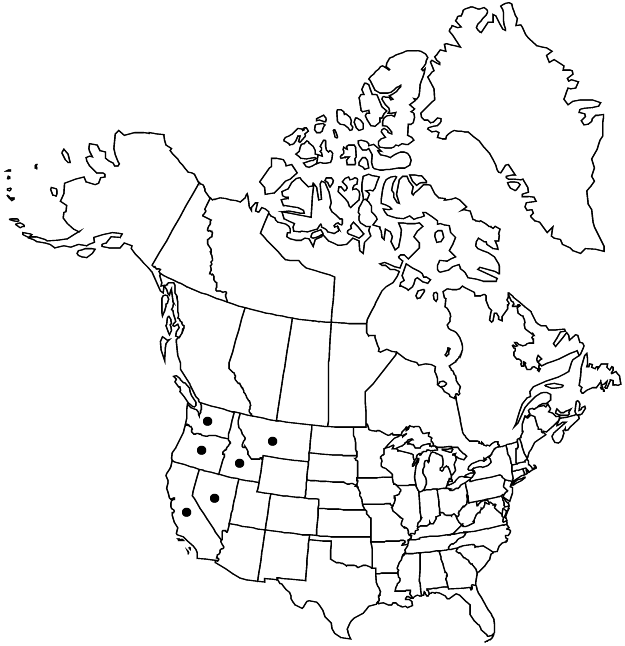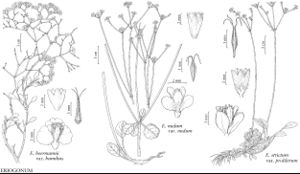Difference between revisions of "Eriogonum strictum var. proliferum"
in C. L. Hitchcock et al., Vasc. Pl. Pacif. N.W. 2: 132. 1964.
FNA>Volume Importer |
FNA>Volume Importer |
||
| Line 8: | Line 8: | ||
}} | }} | ||
|common_names=Proliferous wild buckwheat | |common_names=Proliferous wild buckwheat | ||
| − | |basionyms={{Treatment/ID/ | + | |basionyms={{Treatment/ID/Basionym |
|name=Eriogonum proliferum | |name=Eriogonum proliferum | ||
|authority=Torrey & A. Gray | |authority=Torrey & A. Gray | ||
| + | |publication_title=Proc. Amer. Acad. Arts | ||
| + | |publication_place=8: 164. 1870 | ||
}} | }} | ||
|synonyms={{Treatment/ID/Synonym | |synonyms={{Treatment/ID/Synonym | ||
| Line 63: | Line 65: | ||
|publication year=1964 | |publication year=1964 | ||
|special status= | |special status= | ||
| − | |source xml=https://jpend@bitbucket.org/aafc-mbb/fna-data-curation.git/src/ | + | |source xml=https://jpend@bitbucket.org/aafc-mbb/fna-data-curation.git/src/f6b125a955440c0872999024f038d74684f65921/coarse_grained_fna_xml/V5/V5_639.xml |
|subfamily=Polygonaceae subfam. Eriogonoideae | |subfamily=Polygonaceae subfam. Eriogonoideae | ||
|genus=Eriogonum | |genus=Eriogonum | ||
Revision as of 20:09, 24 September 2019
Plants loose mats, 2–4 dm wide. Leaf blades broadly elliptic to ovate, 1–3 cm, grayish-tomentose to floccose on both surfaces, sometimes greenish-tomentose to floccose and greenish adaxially. Inflorescences 5–15 cm; branches tomentose to floccose. Involucres 4–6 × 2–4 mm, tomentose. Flowers 3–5 mm; perianth white to rose or purple.
Phenology: Flowering Jun–Sep.
Habitat: Sandy to gravelly flats and slopes, sagebrush communities, montane conifer woodlands
Elevation: (100-)400-2700 m
Distribution

Calif., Idaho, Mont., Nev., Oreg., Wash.
Discussion
Variety proliferum is widespread and often rather common throughout its range. The largest concentration is found in a gentle arc from northeastern Washington to southern Idaho and western Montana. The variety is widely distributed also in central and eastern Oregon, northern California, and Nevada. In portions of central Idaho and western Montana, some individuals clearly approach Eriogonum ovalifolium var. pansum.
Selected References
None.
